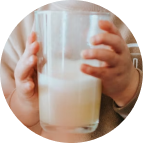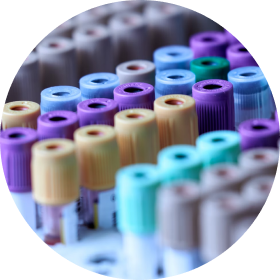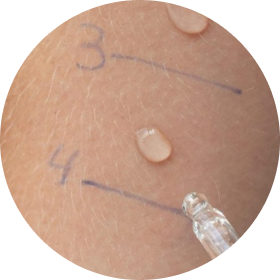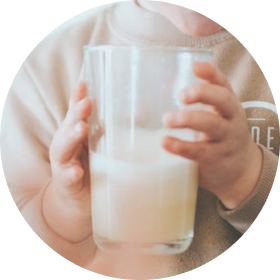NEXT UP
Diagnostic Elimination Diet and Food Reintroduction/
Challenge
The elimination of food/s that appear to trigger the allergic reaction is followed by the food challenge, or the reintroduction of those food/s back into the child’s diet (or mum’s diet if breastfeeding), while monitoring the symptoms.
The food challenge helps to confirm if the reaction is allergic in nature. It is used in practice when the IgE tests and/or the reaction history is not 100% clear, or when you want to determine if a child has outgrown their food allergy.
How it Works

Diagnostic Elimination
Diet 2-6 weeks
The elimination diet is as intuitive as it sounds – Cows' Milk Protein (CMP) is completely eliminated from the infant’s diet for 2-6 weeks. This includes eliminating CMP from the mother’s diet, if they are breastfeeding.
If, after the elimination period, the symptoms do not improve, you can be confident that CMPA is highly unlikely. If symptoms do improve, an oral food challenge is usually performed. This is when CMP-based foods are re-introduced, in a controlled way, into the child’s diet to confirm the diagnosis of CMPA.
Once CMPA has been confirmed, a therapeutic elimination diet entirely free from CMP (dairy) will be required. Ideally this should be supervised by a clinically trained specialist dietitian.
The specialist dietitian is advised to provide the parent/caregiver with as much information as possible. This might include, for example, a complete list of the foods containing the proteins the child should avoid, or mum needs to avoid if breastfeeding. A symptom tracking chart or daily diary is also helpful, enabling the parent/caregiver to monitor symptoms while the child is on the elimination diet.

Serum Specifc |

Skin Prick Test (SPT) |
GOLD STANDARD

Diagnostic Elimination Diet and Food Reintroduction/Challenge |
|
|---|---|---|---|
| IgE-mediated CMPA | |||
| non-IgE-mediated CMPA | |||
Guidelines for Diagnosis and
Management of CMPA
You can find more detailed information about the diagnosis and management of CMPA in the different guidelines that have been published including:





